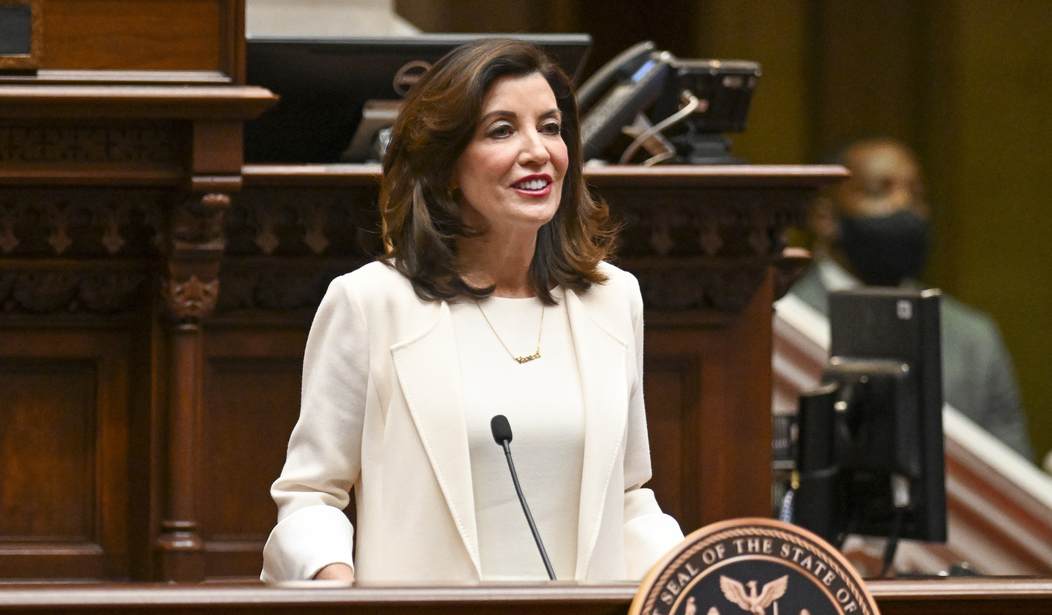There is a running joke among civil rights advocates that if the NYPD Firearms License Division installed a sign that read, ‘Blacks need not apply,” a court would uphold it. The Empire State had a near-perfect record of defending the sanctity of its controversial firearms licensing scheme- a body of regulations that served as a model for the national gun control movement for generations.
This all changed Thursday when the U.S. Supreme Court, by a 6-3 vote, struck down much of New York’s Sullivan Law, the notorious 110-year-old statute that created a discretionary system designed to prevent minorities, immigrants, union members, and low-income New Yorkers from obtaining firearms permits. Until the Court killed it, the Sullivan Law was incredibly successful in restricting permits to the “3 Ws”- those wealthy, White, and well-connected.
The law gave majority-White police departments unilateral discretion over whom they would grant permits. Departments could create their own requirements to discourage applications from members of disfavored groups. Even if an applicant jumped through all the hoops, the “just cause” standard served as a handy catch-all to reject her paperwork. Today, we call this “systemic racism” or more specifically, “systemic racism in policing.”
Last April, Princeton Professor Kevin Kruse highlighted this phenomenon. He warned that even race-neutral voting laws could be used as a trojan horse by racist administrators seeking to further Jim Crow-style discrimination. He made his case by pointing to the long history of discretionary firearms licensing schemes that appeared race-neutral but were administered in a far more sinister manner. The 1956 denial of a gun permit to the venerable Dr. Martin Luther King, Jr. after the bombing of his Alabama home is one such example.
Recommended
The New York political class has known about this problem for decades and has labored to avoid it. Even after George Floyd’s murder turned a harsh spotlight on the NYPD, the Firearms License Division was oddly off-limits- as if the same officers who would shoot and beat Black and Brown New Yorkers somehow could be trusted to issue them permits equitably. I and others decried this hypocrisy. However, the issue of racism in licensing remained taboo.
As with other Jim Crow structures, it took a thunderbolt from the Supreme Court to force change. And what thunderbolt it was! Not only did the Court discard the concept of discriminatory licensing, but Justice Clarence Thomas’ majority opinion reiterated that the Second Amendment “isn’t a second-class right.” Justice Thomas also clarified the level of legal scrutiny that likely will dismantle many big cities’ gun laws. This was one of America’s most significant Civil Rights rulings and one of the Nation’s most expansive re-enfranchisement of citizens’ rights ever.
Remember, this majority opinion was penned by a Black man. In fact, the diversity of the players involved presents an unprecedented dynamic in U.S. history, one worth addressing given our identity-obsessed society.
New York State Rifle and Pistol Association v. Bruen is the first time a Black woman, Attorney General Letitia James (D-NY), stood before the SCOTUS to defend Jim Crow. Democrat Eric Adams, New York City’s second Black mayor said that this case “kept him up at night” even though, as a former cop, he regularly carries a semi-automatic.
Gubernatorial candidate and Public Advocate Jumaane Williams (D-NY) tried to defund the NYPD. And yet he now laments the department’s loss of its discretionary power over gun permits.
Democrat Donovan Richards (D-NY), Queens’ first Black Borough President, seems to think that ending discrimination somehow is incongruous with “common sense.”
And such prominent Black State Senators such as Zellnor Myrie (D-NY) and James Sanders (D-NY) outright refuse to address basic questions about racism and inequality in firearms licensing. How is this possible in Progressive New York?
Meanwhile, New York’s first female governor, Democrat Kathy Hochul, insinuates that gun violence will explode on the sidewalks of New York now that a more diverse license holder base will populate the Big Apple. This dog whistle echoes long-standing White liberal fears of armed Black and Brown people. Hochul also professed that New York is “not going to cede our rights.” Like George Wallace, Hochul harkened back to the days when Dixiecrats invoked “states’ rights” to resist SCOTUS’ rulings on school desegregation.
Most notably, Justice Sonia Sotomayor, the high court’s first Latina was among the dissenters. Sotomayor’s working-class parents in the Bronx were the very people the Sullivan Law was designed to deny. Perhaps Sotomayor is comfortable with this irony, now that her black-robed privilege trumps the disadvantages of her skin tone- at least according to the NYPD Firearms License Division.
In short, New York State Rifle and Pistol Association v. Bruen is profound not only because it restores civil rights to so many, but because it shows that the allies and enemies of the Civil Rights movement have diversified along with the rest of society. A young Black woman with a briefcase may be just as detrimental to Dr. King’s dream as an old White man with a hood. We must remain vigilant and continue to resist hate in all its forms if we are to protect the civil liberties we hold dear.
























Join the conversation as a VIP Member